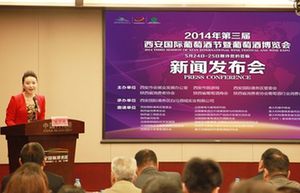Flash quit
By Shi Jing ( China Daily ) Updated: 2013-05-10 08:14:21'I wasn't happy'
Approximately 57 percent of respondents to a survey on the career adaptability of college graduates changed their job within three years of starting work, while 32 percent had worked for more than three employers, according to a report released by Beijing Municipal Commission of Education in late 2012.
The survey also discovered that the post-1990 generation accounted for the highest number of flash quitters, with 30.6 percent of respondents taking the controversial step, 5 percent higher than the national average.
"I wasn't happy," was the reason Li Yuchen gave four quitting her last job. Although she had been with her employer for almost three months, she had made the decision within four weeks of starting work for the company.
With a bachelor's degree from Nanjing University and a postgraduate degree from the London School of Economics, the 28 year old has had four jobs in her four-year working life.
"It was a global consulting firm and they offered me about 20,000 yuan per month. But I didn't like it, anyway. The management mechanism wasn't transparent," said Li, who now works for an advertising company in Shanghai, earning 8,000 yuan a month.
Her parents are university professors. Neither understood what was happening with their daughter and they never asked.
"I understand that future employers will see frequent job-hopping as a big negative, but, you know, a lot of things in life can't be planned or foreseen," said Li.
Self-fulfillment
Despite this, it would be unfair to assume that young people have no career goals.
In a survey released at the beginning of the year by 51job, China's leading employment website, human resources professionals explained that younger job hunters, especially those born after 1985, are less loyal to their employers because "they are more concerned with self-fulfillment".
Wu Yizhong, 27, spent two months working for a well-known Spanish fast-fashion brand as a supervisor. Wu's degree in administrative management prompted the company to offer her a monthly salary of around 7,000 yuan. Although the remuneration was good, Wu said she could not work with her boss because she felt his management practices lacked consistency.
"What I care about most is teamwork. It matters so much to me that everyone has the same goal. I can't stand it when people reset goals within a very short time period. It means that all the previous efforts are wasted," she said.
She gave herself a month to adjust to the working environment, but when the second month rolled around and she realized she would never embrace the company's ethos and methods, she stopped trying and quit, even though her boss tried to persuade her to stay.
"My parents both work at the hospital. Of course they were worried when they first heard the news. But they are quite open-minded and said they would respect whatever decision I made," said Wu.
Many younger people with college degrees, especially the post-'90 generation, quit because they feel the job fails to match their expectations. At least, that's the experience of Liu Lei, human resources manager at Sensata Technologies of Jiangsu province, which manufactures sensors and control equipment.
"Most of the graduates we recruit have an engineering background. They want to be challenged by their job. If they find the job too easy, with few problems to solve, they will simply quit," said Liu.
"Vocational school graduates are another group prone to flash quitting. If they feel the job is demanding, boring, dull and poorly paid, they stop showing up. But at a company with very strict rules, such as this one, anyone who is absent for three days without good reason will be fired," she said.
|
|
|
|
|
|
|
|


















 Op Rana
Op Rana Berlin Fang
Berlin Fang Zhu Yuan
Zhu Yuan Huang Xiangyang
Huang Xiangyang Chen Weihua
Chen Weihua Liu Shinan
Liu Shinan